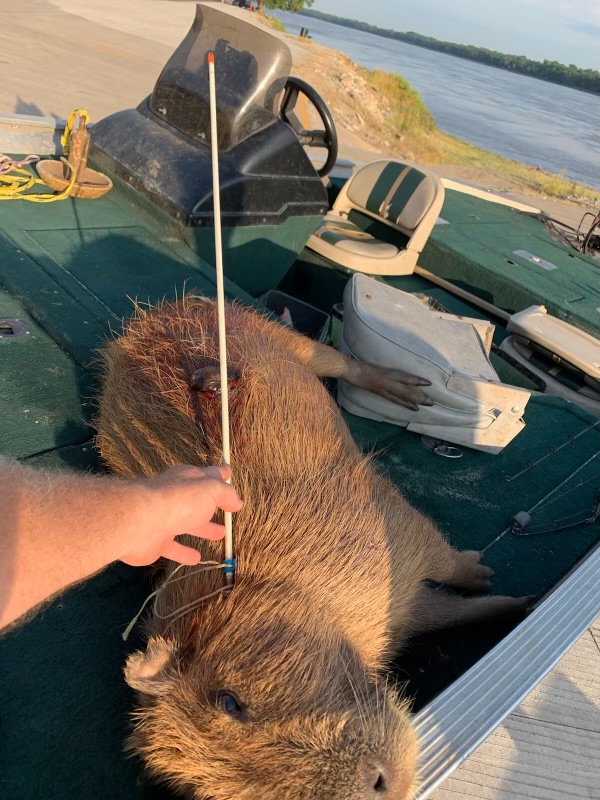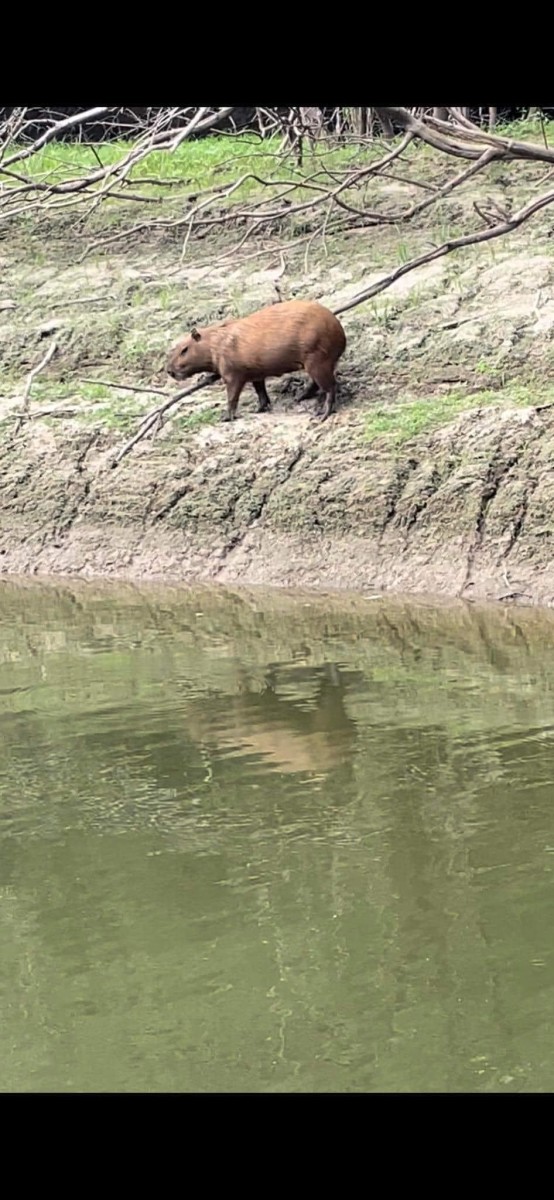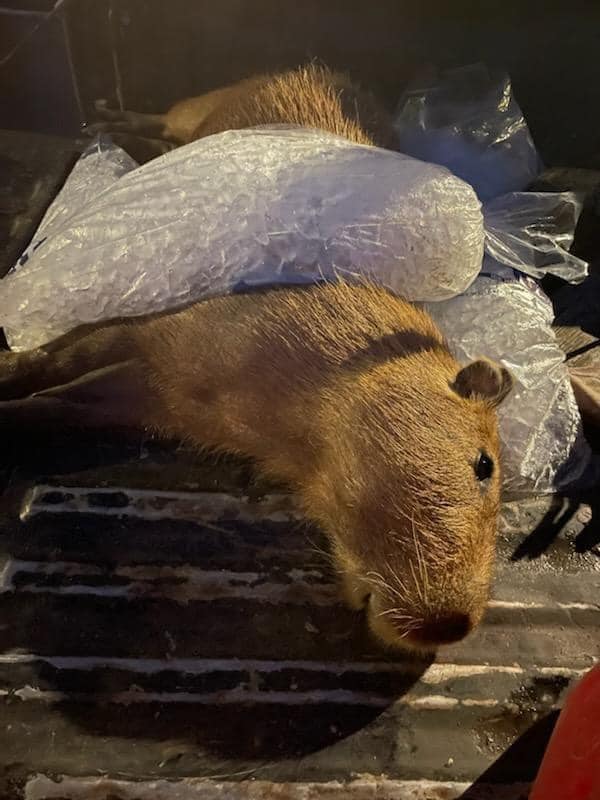
An Illinois man came home with an unusual harvest after a bowfishing trip in Randolph County.
The man, who’s name has not been released, was featured with his kill on the Facebook page of a southern Illinois hunting group. The harvest appears to be a mature capybara.

Capybaras are giant rodents native to South America. They are the largest rodent in the world—about twice the size of a beaver—and can sometimes reach weights in excess of 170 pounds. According to 618 Hunting, the Illinois capybara recently taken weighed in at 80 to 90 pounds.
How the semi-aquatic jungle rat found its way into a tributary of the Mississippi River is anyone’s guess, but chances are good that it was kept as a pet at one time or another. In recent years, capybaras have become increasingly popular as pets in homes across the country. A quick Google search turns up numerous blog posts about the ins and outs of capybara-keeping, and people who house the large exotic rodents as in-home companions claim they are smart and sociable.

Illinois isn’t the only state to host wayward capybaras in recent years. A wild breeding population is said to exist in northern Florida, and researchers there have been observing the animals since at least 2016. According to Science News, that population was about 50 capybaras strong as of August 2016, and it may have originated from a group that escaped from a wildlife research facility near Gainesville in 1995.
“Several sightings suggest they have been breeding,” biologist and capybara researcher Elizabeth Congdon told Science News back in 2016, adding that, “they might be able to make a go of it in the United States.”
Congdon and her graduate students have been observing the northern Florida capybara population in order to assess the species’ potential for becoming a bonafide invasive in the United States. She says the animals share a lot of similarities with nutria, another invasive, semi-aquatic rodent that’s now found in at least 20 states, according to the USDA’s Animal and Plant Health Inspection Service (APHIS). Nutria were introduced to the United States in the early 1900s and quickly established breeding populations that now have little hope of extirpation. They can cause severe damage to aquatic ecosystems, according to APHIS.
The legality of keeping large exotics like capybaras as in-home pets is thorny at best. While some states outlaw the practice altogether, others allow residents to keep capybaras if they can obtain the proper paperwork from a governing agency. The Illinois Department of Natural Resources was not available to comment about the capybara that was recently killed in Randolph County.

Images via 618 Hunting Facebook page.





